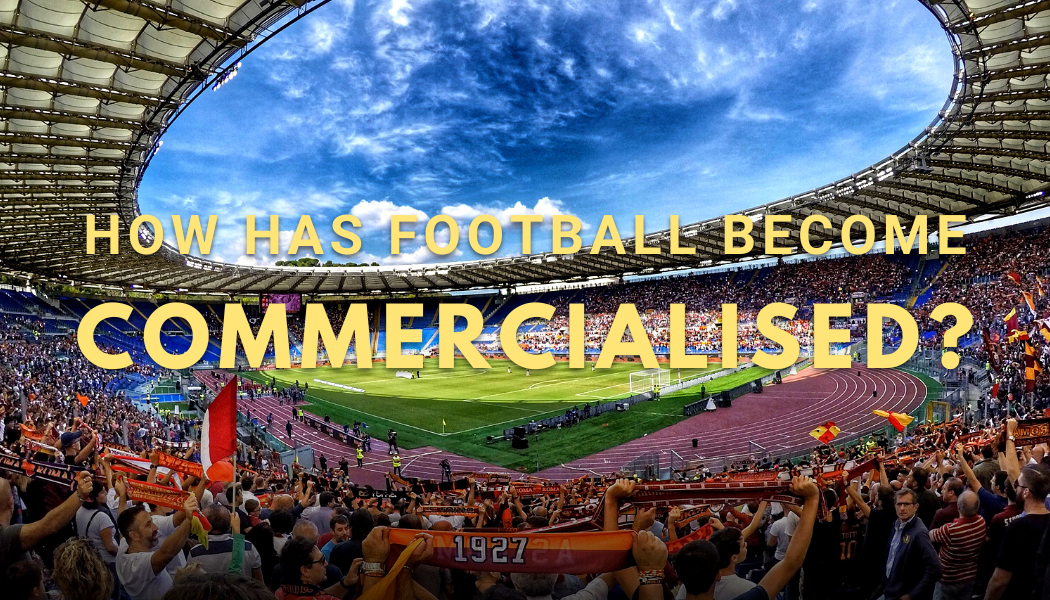
Have you ever realized that football is shifting into a business more commercialised industry? As human evolve, so do the industries around us. With the involvement of technology paired with human knowledge, the growth of commercialization in the beautiful game is rapidly growing especially in this twentieth century.
Football nowadays is completely different from the days where it was played solely for the love of the game. A lot of players are valued more than just a player, they are treated as a commodity that eventually helps on the revenue of the game. We also see deals of sponsorships right from the grassroots to a professional level. But what actually makes the game being very market-driven? This article will discuss factors that influence the evolution of the game off the field.
The Involvement of Governing Body
Governing body is formed to control the activity of the sport by setting a certain set of rules and boundaries in order to sustain the sport itself and grow the impact of the sport further. In the case of football, there are several governing bodies at different stage. For example, FIFA governs the football industry globally. UEFA governs Europe and within Europe, they have each governing body that governs their own footballing country. Rules are different in each contingent depending on the nature of the environment.
The governing body is usually responsible for administrating the format of the competition as well as the professionalisation of the league. As football gaining interest around the globe, spectators are willing to pay to watch the game as well as attracting wealthy investors to put money in the industry. Even though governing body operates in the public sector, they are still trying to get revenue. The main difference is they invest most of the income back to the sport so it can sustain and eventually made some growth.
Political Shift of Neoliberalism
Neoliberalism is free-market trade, deregulation of financial markets, individualisation, and the shift away from state welfare provision. In simpler terms, neoliberalism is an ideology of a market-driven industry where everything is bound to financial provision. We can even see at the grassroots level, it requires some financial provision in order to participate. Unfortunately, the downside of this if it persists, could hinder the development of young talents. Lacking financial provision should not hinder players to participate in football.
At the professional level, it is very apparent that every club is trying to capitalize on income in every department. Whether that be, sponsorships, hospitality services such as VIP box or stadium tour as well as ticket and merchandise sales. Using these sources of income, it is not a surprise for players nowadays to earn a huge sum of money through playing football. In addition to that, top professional players tend to reap financial gain through sponsorship and endorsement which sometimes can be bigger than their actual salary.
Emergence of Technology
This without a doubt is relevant to every industry, not excluding football. The use of social media has enabled sponsorship and broadcasting rights to reach a new level. A club could reach a large number of fans and its customers in more effective ways. The exposure they can get through social media is enormous so it attracts companies to invest in the club. In return, the club could gain additional revenue besides their traditional income from ticket sales.
Another example of technology impacting football is the easier access spectators can gain to interact with their desired club through personal devices. It could be as simple as watching matches through their phone or buying seasonal tickets on a website instead of going to the ticket office. We see an increasing number of internet streaming in almost every sports match. All because of the ability to access the internet at our fingertips.
The Impact of Globalisation
Globalisation, as it says, means global effect. In terms of football, it has played a huge part in enabling clubs to reach a new fan base or wider market other than their origin country. A club like Manchester United has a huge fan base worldwide. Interestingly, only 1% out of 1.1 billion people worldwide. This is often related when clubs doing pre-season matches in countries abroad to attract fans in a particular area.
Major international tournaments such as the FIFA World Cup is one of many examples too. Countries are competing in trying to host the tournament in order to reap its huge benefit. As it would have an impact on tourism, the social environment, and the economy of the chosen country.

Impact on tourism can be found with the number of people who decided to explore that particular country during the event taking place. If you go to watch your favourite team playing an away game, you would likely go somewhere while waiting for the game to start. That being said, it would implicitly impact the economic aspect of that particular area if you decided to buy something such as food, souvenir, etc.
Having a major tournament also creates this hype among society. From kids to adults, they all sparing their time to watch the games of their favourite team. I grew up watching Cristiano Ronaldo on TV. Since then he has inspired me to do what he does in the game, which motivates me to train and be like him. It’s no different with other kids around the world who are in the same situation. That alone would likely increase the participation number for grassroots football which tend to shape the society of that particular area.
Conclusion
In conclusion, commercialisation in football is something that can’t be avoided. It slowly makes a lot of changes to the nature of the game both on and off the field. Being able to adapt to the current situation is the only way for the industry to sustain and grow. The next generation of footballers and the football industry is will never be the same.




Way cool! Some extremely valid points! I appreciate you writing this post and the rest of the website is also very good. Kelli Stavro Harbison
Thank you! I appreciate your feedback pal!